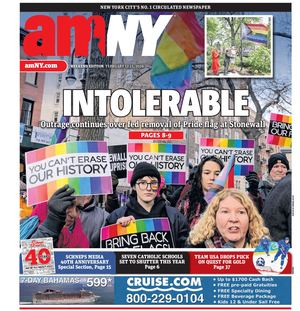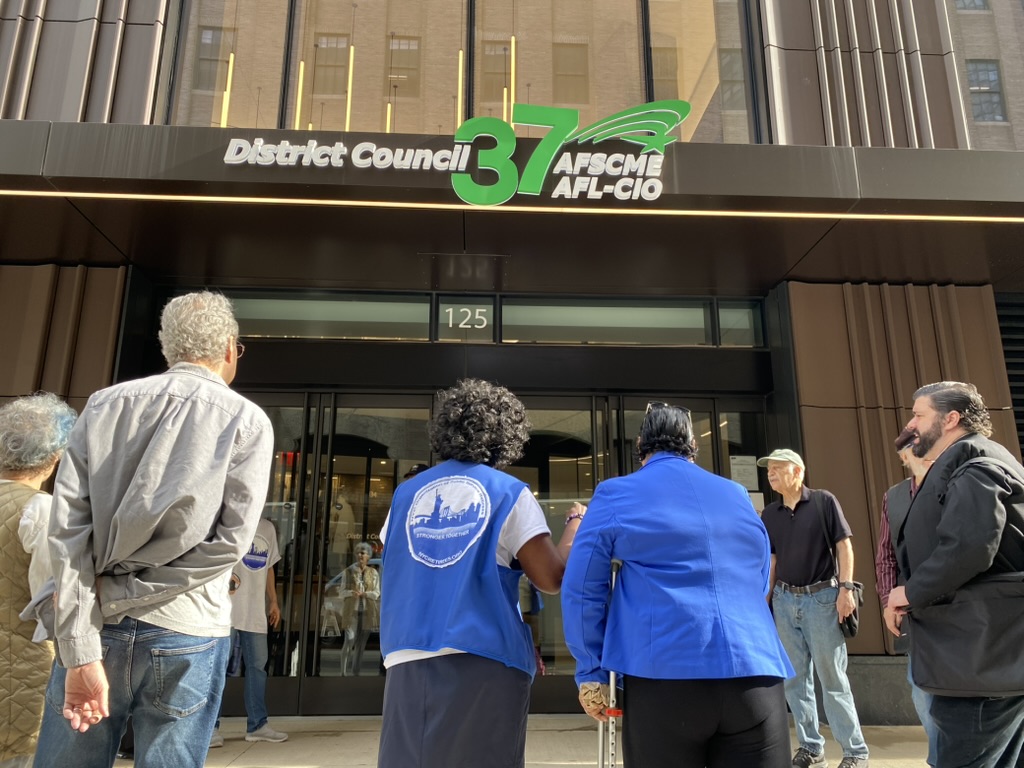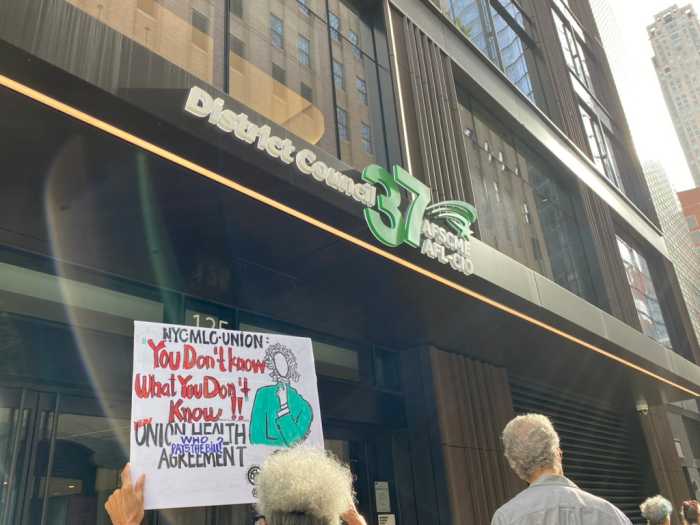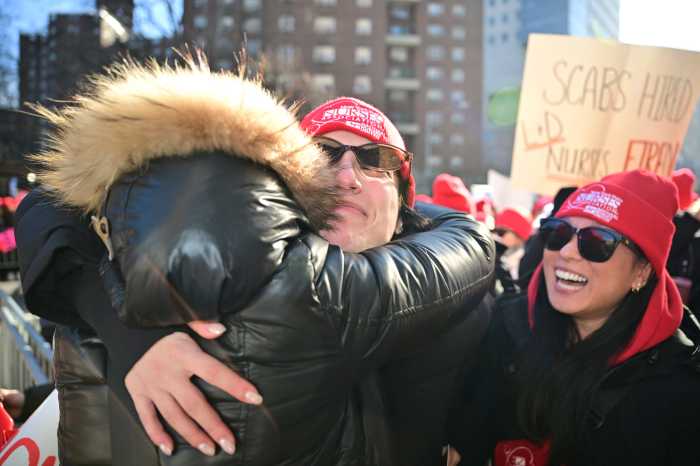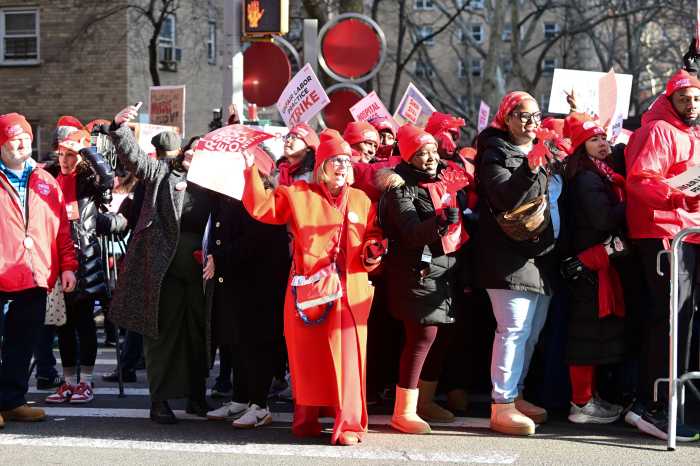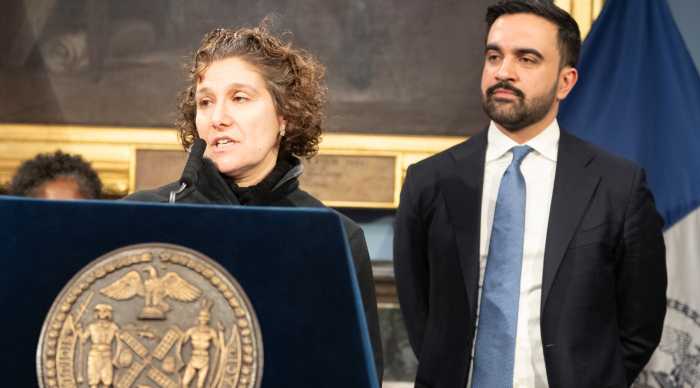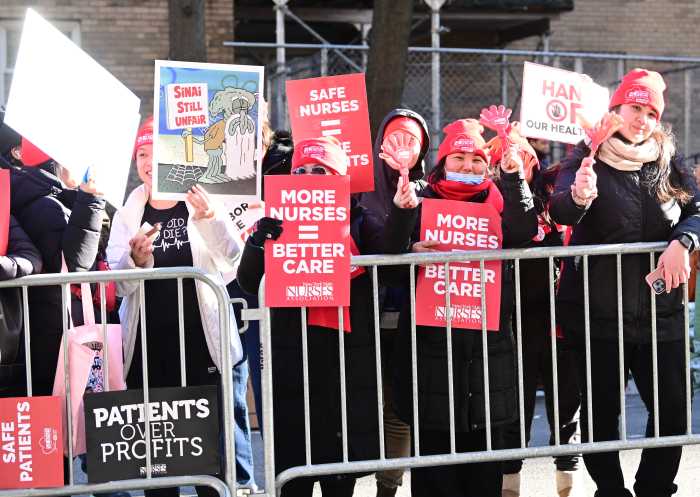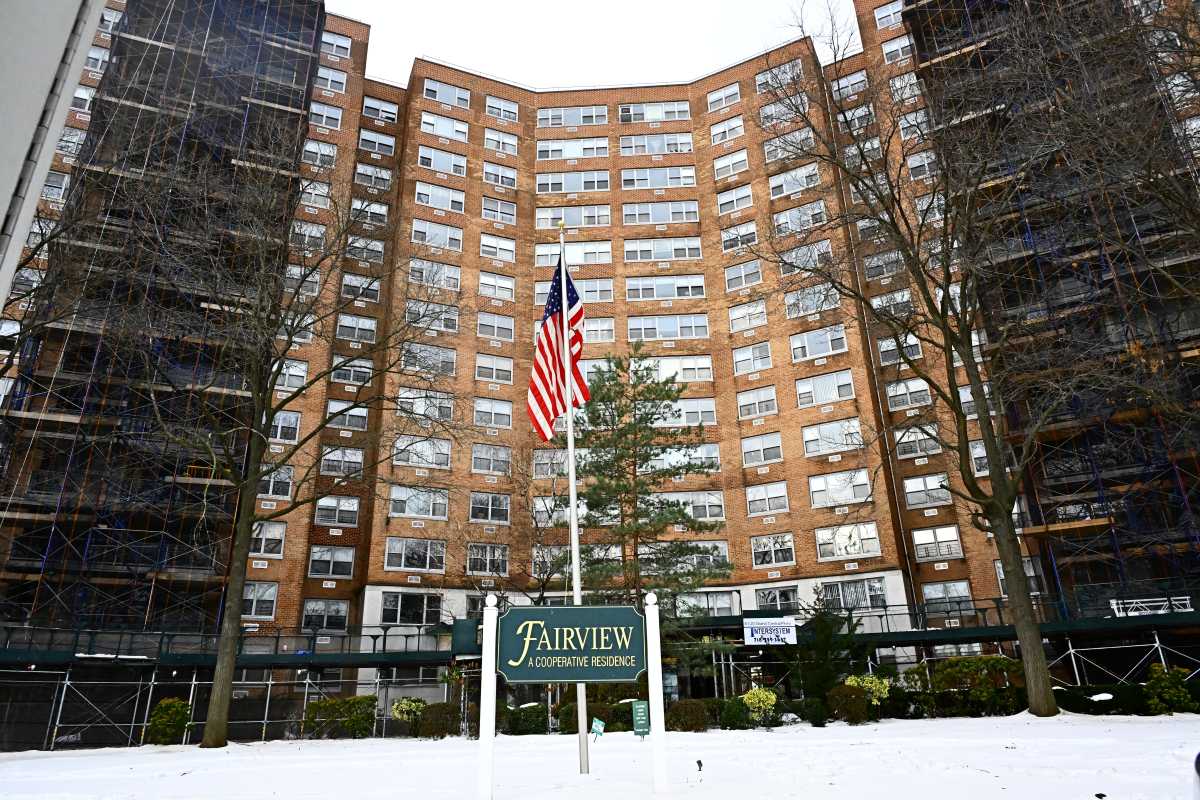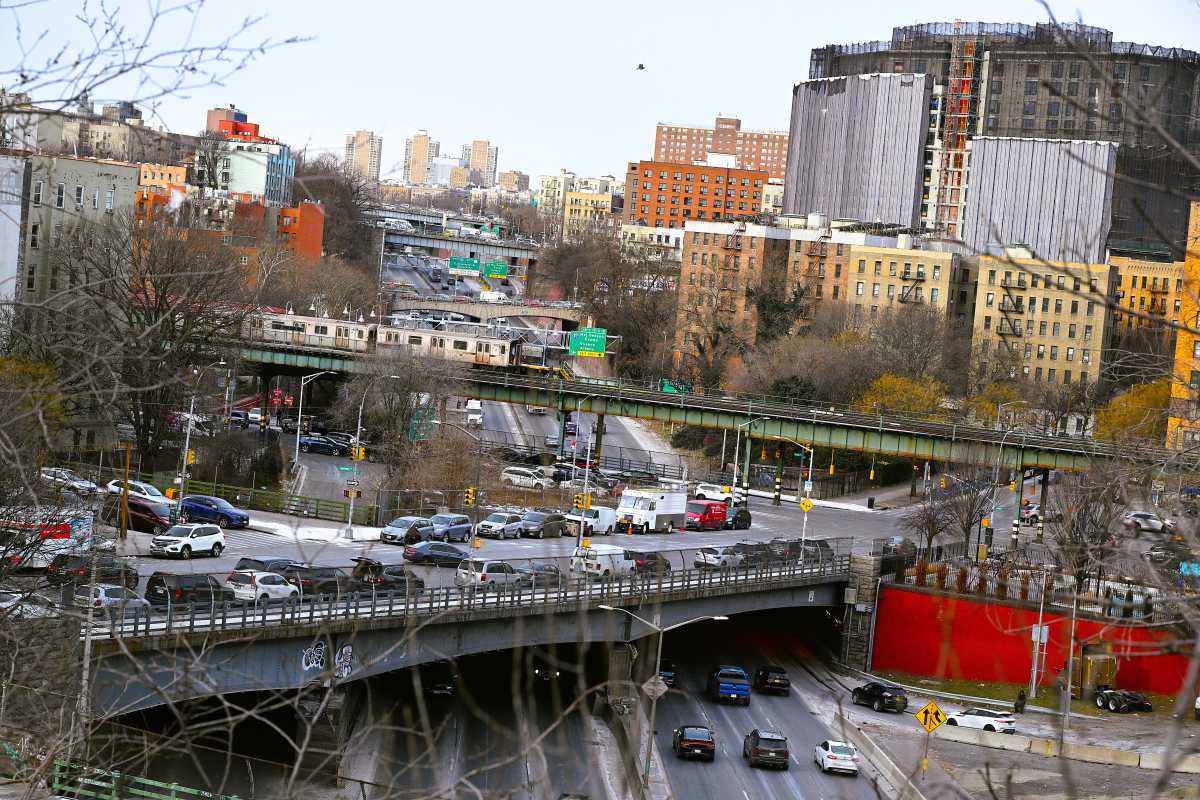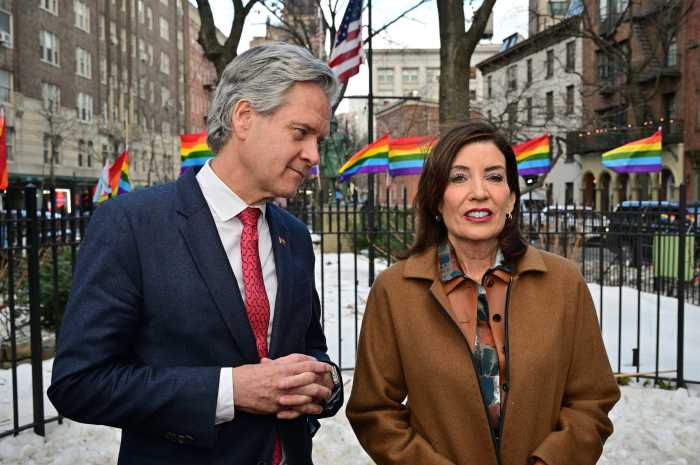The city’s largest public-sector unions approved a sweeping health care overhaul Tuesday that, if finalized, will move more than 750,000 active employees, pre-Medicare retirees, and their dependents into a new self-funded insurance plan administered by EmblemHealth and UnitedHealthcare — a change that critics blasted as rushed, secretive, and risky.
The Municipal Labor Committee, an umbrella group of more than 100 city unions, voted to replace the popular GHI Comprehensive Benefits Plan with a new premium-free model beginning Jan. 1, 2026. The contract, awarded earlier in June, will run for five years.
Mayor Eric Adams’ administration stated that the plan will utilize the city’s purchasing power to provide more doctors, mental health providers, and a broad national network, while saving up to $1 billion per year.
“This plan would provide over 10,000 additional health care providers in the downstate New York Area over 20,000 more mental health providers in New York state, and — for the first time — a broad national network of over 1.6 million providers outside the downstate New York area, allowing tens of thousands of retired city employees to receive care where they live without the costly out-of-network charges often incurred under the current plan,” Mayor Adams said following the vote.
However, critics argued that the process resembled the city’s contentious effort to enroll retirees in a Medicare Advantage plan in 2021—a legal battle that ultimately ended when Adams abandoned those plans despite the courts siding with him. Then, as now, they said they were denied basic information before the vote.
Unions had to send representatives to District Council 37’s headquarters this month to read the contract in person, Politico reported, only to find whole sections heavily redacted.
Outside Tuesday’s vote in at DC37’s headquarters in Lower Manhattan, retirees and active workers rallied against the plan as MLC members filed in.
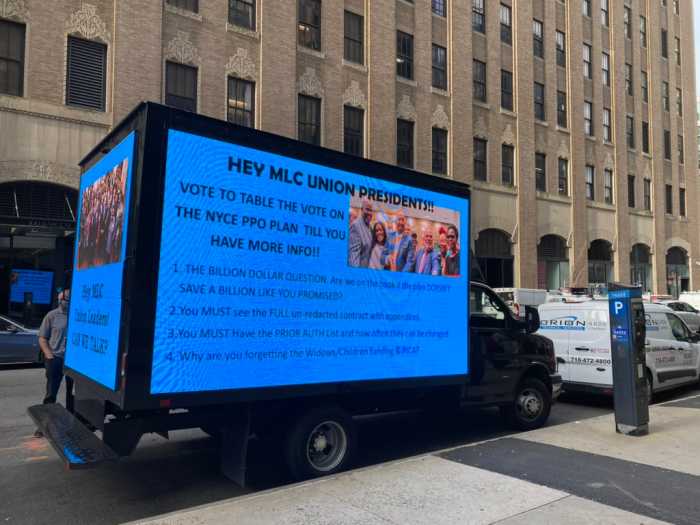
“We were not allowed to see the contract. Even the people who did see it saw only redacted versions,” said Wanda Williams, a retired DC 37 member and board member of Hands Off NY Care. “This is being done without a vote of the membership and without any consultation, and it is anti-union. City Hall is taking a huge risk with our health care, claiming that this new plan will deliver $1 billion in savings with no proof.”
“You cannot disengage your membership and tell them that what you’re doing on their behalf is good without sharing the information with them,” she told amNewYork, before expressing concern over the city’s choice of UnitedHealthcare to administer part of the plan, noting the risks of moving to a self-funded model.
“You’re putting us in a risky proposition,” Williams said, citing potential issues with budget priorities and reduced state oversight.
With details still under wraps, Williams also raised concerns about the privacy implications of how members’ health data might be used under the proposed plan. She is also concerned that $100 million in savings could be achieved by sharing sensitive information, and that $400 million could be saved through utilization management, which she noted could result in denied care.
She added that these concerns are heightened by the city’s accelerated schedule, leaving employees and retirees little chance to fully grasp the impact of the changes before they take effect.
Migdalia Acevedo, president of Chapter 3 of the NYC Health and Hospitals division of Local 375, said delegates were unable to properly review the plan before being asked to sign off. “Our union leadership has excluded the rank and file from these negotiations, which are mandatory subjects of bargaining,” she said. She warned the changes could raise out-of-pocket costs and said “what they call cost savings is really profit at the expense of denied care.”
She also said the plan appears to limit out-of-network benefits, which she called “our most precious resource” for getting second and third opinions. Acevedo said that even delegates she spoke with were unsure how the plan would be funded or administered.
A spokesperson for City Hall stated that it understands employees and pre-Medicare retirees have questions regarding the new plan, but these details will not be available at this stage of the procurement process for any city contract.
“While some details have been shared with the MLC because health benefits are a mandatory subject of bargaining, they would not be shared outside the collective bargaining process until the appropriate stage in the city’s procurement process,” spokesman William Folwer told amNewYork, noting that the contract for the new plan will now undergo the public comment process beginning October 1.
A redacted version of the contract is due to be posted for the public notice period, as required under the city’s procurement rules.
Fowler added that the plan does not have higher member costs than the current GHI Comprehensive Benefits Plan.
Skepticism spans generations
For those protesting on Tuesday, the shift still feels like a betrayal.
“I retired about two years ago. I had worked for the city for a total of nearly 47 years. This is not what was promised to me after all these years, and it infuriates me,” said Mary Kanigher, 68. “The pay is lousy, but at the end you’ll be taken care of. This is not what was promised.
Kanigher said her mother, also a retired city worker, lives on about $15,000 a year and cannot absorb higher medical costs. “How is she going to live on paying extra money? This is a very bad deal for us.”
Younger workers expressed concern about what Tuesday’s approved plan means for their long-term security.
“Basically, no one has seen it, really, no one has read it, and no one that the rank and file membership trusts has even been able to look at it,” said Evon Magnusson, 26, a Local 375 parks forester. “We don’t want to stop the healthcare plan. We want a good new healthcare plan. We just want one that is fair … if it’s going to do a billion in savings, we want to know that’s not actually going to lead to cuts in services.”
Magnusson said the secrecy has deepened mistrust after the Medicare Advantage “fiasco” with retirees. “If they did that to the retirees, what are they doing to their active current members right now?” he said.
Wanda Williams concluded that active union members and retirees are prepared to explore all options, including potential legal challenges, to protect their healthcare benefits.
